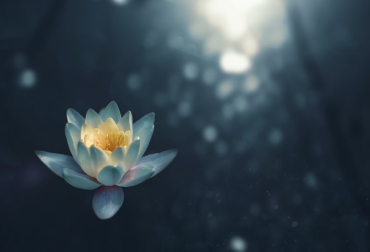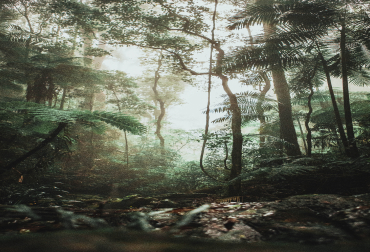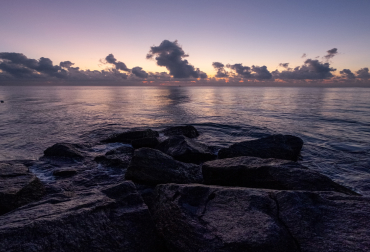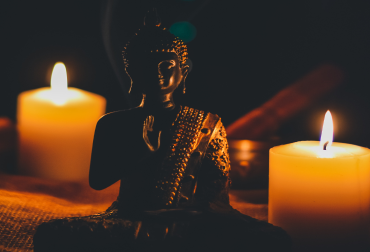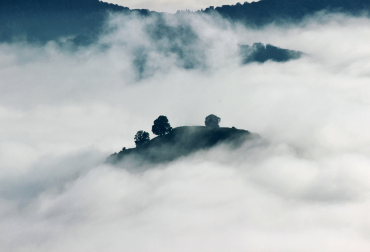
Are We Living in a Simulation & Does it Matter?
How do we know if anything is real? How do we know we are not existing in a simulation or some other pre-programmed machine? Do we have freewill or is everything predetermined and limited to computer game-like constraints? Such questions are only becoming more common, and with the continuous growth and expansion of artificial intelligence, it is important to ask, what is it that really makes us different?
If we were to say right now that this entire reality, and by extension, our entire lives were a simulation, then what would really change? Would we suddenly lose our desire to eat, sleep or interact? Would we just fall into a comatose-like state? Would we start running around doing whatever we feel like because now ‘nothing is really real and therefore does not matter’? Not necessarily, because the same engine that drives our living urges would continue to operate whether this reality is acknowledged as being a simulation or not. But it is also important to ask, how do we define what a simulation is? Is a simulation just something that is not ‘really’ real? What then is ‘really real’, and does it matter if this life is not ‘really real’?
It seems that the way we would actually define what is ‘really real’, through the current human perspective, would be that something is actually as we think and perceive it to be. For example, that our body is just a physical object made up of certain identifiable materials, and thus the scope of what this body is and is not stretches only as far as our general moment-to-moment understanding/perception has so far reached to. In that case, the body, and we ourselves are ‘real’. But we could also state that in fact, and as modern science is now beginning to realise, our bodies are just an intelligently organised collection of particles/waves and empty space, and in turn that the organisation of those particles is just a hologram or projection of an intelligence and substance that cannot be mentally comprehended or measured in any way. In that case, are we still as real as we take ourselves to be? Can all of our concerns about our lives, our pasts or our futures still hold the same existential sway?
If you think about it, a video game is in some way a stream of organised particles and information – and so are we. The nature and sophistication, unpredictability and arrangement of the flow of those particles may differ, but in reality it is the same underlying substance playing out in different ways, through different dimensions and modes of existence. So, if for us, video games are not ‘really real’, then maybe for another higher form of intelligence, our lives are not ‘really real.’
As humans, we tend see ourselves as intelligent, self-conscious and wise – projecting ourselves as the ‘kings of our little universe’. But, what kind of dimensions may lay beyond this limited consciousness? Such dimensions are unimaginable for the human mind that continues to remain entirely subsumed by the endless churning together of emotional/thought forms and information perceive through the five senses. We should accept this notion not as discouragement, but rather as a foundation to return to and continuously humble ourselves upon.
If our lives are simulated, if every move of ours is predetermined, if we are just guinea pigs for some other, higher intelligent form of life, then so what? Does it mean that we stop living? Does everything become meaningless? We have to acknowledge that we will never be able to conceive of our existence in its entirety. If the moment arrives when we can, then we will no longer be ‘us’ – having refined self and dissolved the limited perception of ourselves as limited, bound-to-the-body-and-mind beings, we would observe this dimension of existence from a different perspective or cease entirely to be aware of it in the same way. If, at one moment we are living in two dimensional space, and in the next we are living in three dimensional space, the nature of what we perceive as two dimensional space, completely and irrevocably transforms. Before it was everything, and now it becomes merely a fragment or part of a larger more wholesome perspective.
We shouldn’t be afraid of always having to live within the daunting mystery of what is beyond ‘us’. There will always be something ‘beyond’. In the face of this, we should continue to strive or move towards what seems to be more real, more wholesome and more unconditionally blissful and fulfilling. It is the very bliss of Being (compared to the lesser discontentment of our smaller, fragmented selves) that continues to pull us further and further through life and evolution. Whether this reality is a predetermined simulation or not, bliss still feels like bliss and inner-contraction and suffering still feels like inner contraction and suffering. There are still moments of beauty and moments of absolute horror for the mind, and for most beings, both polarities will continue to provoke unavoidable reactions within consciousness. However, if we dig into the nature of this reality and begin to refine, we may discover that the nature of bliss is not something that comes when we get what we want or when something happens a certain way but rather, it is the actual substratum of wholesome existence. Likewise, suffering is not something that dawns when we lose something or someone, but rather the natural condition of a mode of perceptual existence that constantly projects its power onto forms that forever shift and change.
But can we not escape from this simulation like Neo does in The Matrix? Well, we can try, but what if the simulation is in fact endless and eternal? We wake up from one simulation only to start dreaming in another, and so on ad infinitum. The very juice, the very movement and purpose of existence comes from the fact that there is always something beyond, always something we don’t know. Only when such a situation ceases would we be able to say that there is a true void or an absolute space of nothingness, yet then there would be no one there to say anything! Ultimately, this is a humbling thought that should denude one of any ideas of spiritual achievement or of being special or great. To live with this mystery in each and every moment (knowing that unknowable eternity is in front of one, behind one, and both inside and outside of one) is to be alive spiritually. That space, which is at once indefinable, ungraspable and yet absolutely fulfilling and blissful, endures however one chooses to categorise or conceptualise the multidimensional forms of creative existence.
As long as one always thinks that, ‘This is the way it is. This is how I am. This is the way reality is.’, one puts an artificial limit on Reality, and one will suffer the consciousness-constricting effects of that limitation – one’s life will be limited solely to one’s own mental constraints and projections. When one develops true existential humility and actively acknowledges the infinite mystery of the Reality, then one’s being becomes a conscious vehicle to expand into and embody that mystery on higher and higher levels. This does not mean that one is achieving something or that one is moving up any spiritual hierarchy. It doesn’t mean anything. It just is. And perhaps for our linear and comparative perspective, it really is a better and more wholesome way to live and exist.
It doesn’t mean that one constantly walks around as a ‘living void’, but rather that one’s every action, doing and expression becomes impregnated with that eternity to the extent that one is able to acknowledge it and embody it at that point.
Whether this moment is ‘really real’ or not, there is still ‘something’, there is still a feeling or a vibration, and there is still a space of Being and Existence that holds us and is the whole of us. Within this space and time, it is this Being that may be grasped by our limited minds as purity, simplicity, contentment, bliss and an inner freedom from anything that arises on the physical, emotional and mental levels that we seem to be drawn to like a moth to the light. Who knows if it really is the Ultimate? Who knows if it is the End? But it is there unmistakably as a deeper and more fundamental aspect of our own essence. By acknowledging and connecting to this we are drawn more and more into that never-ending mystery and bliss of the Unnamable Infinite Reality.



